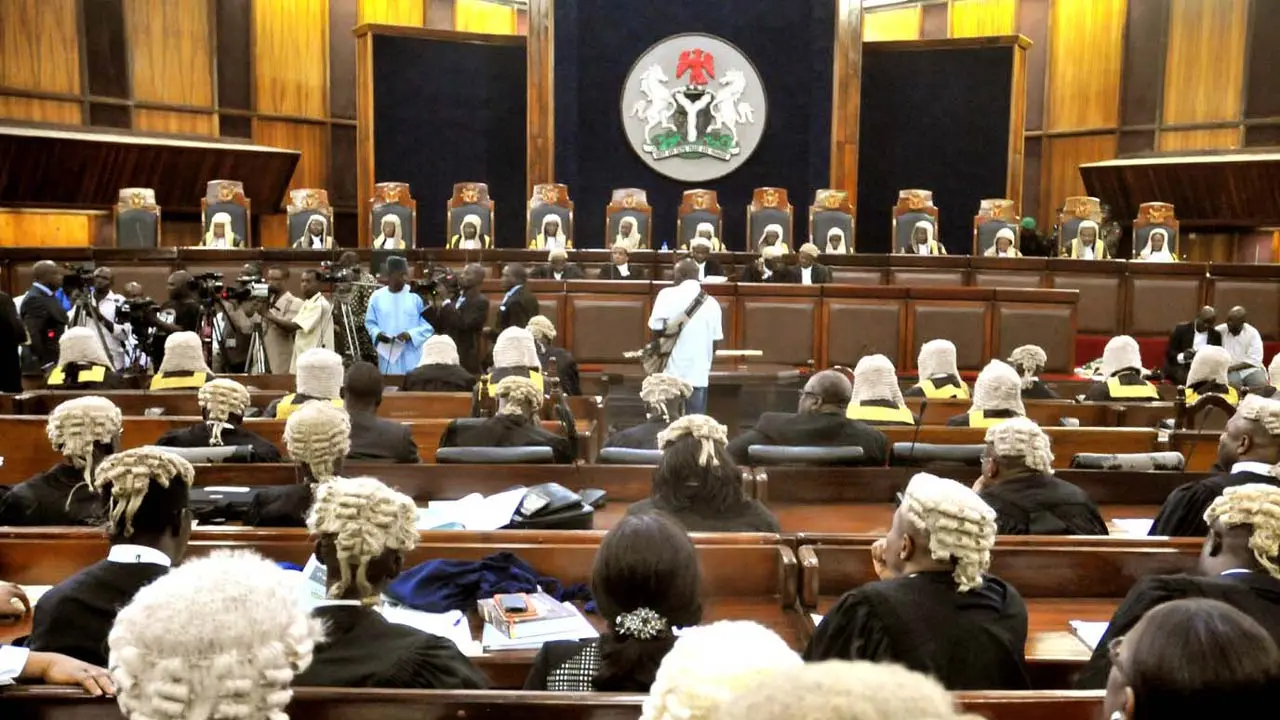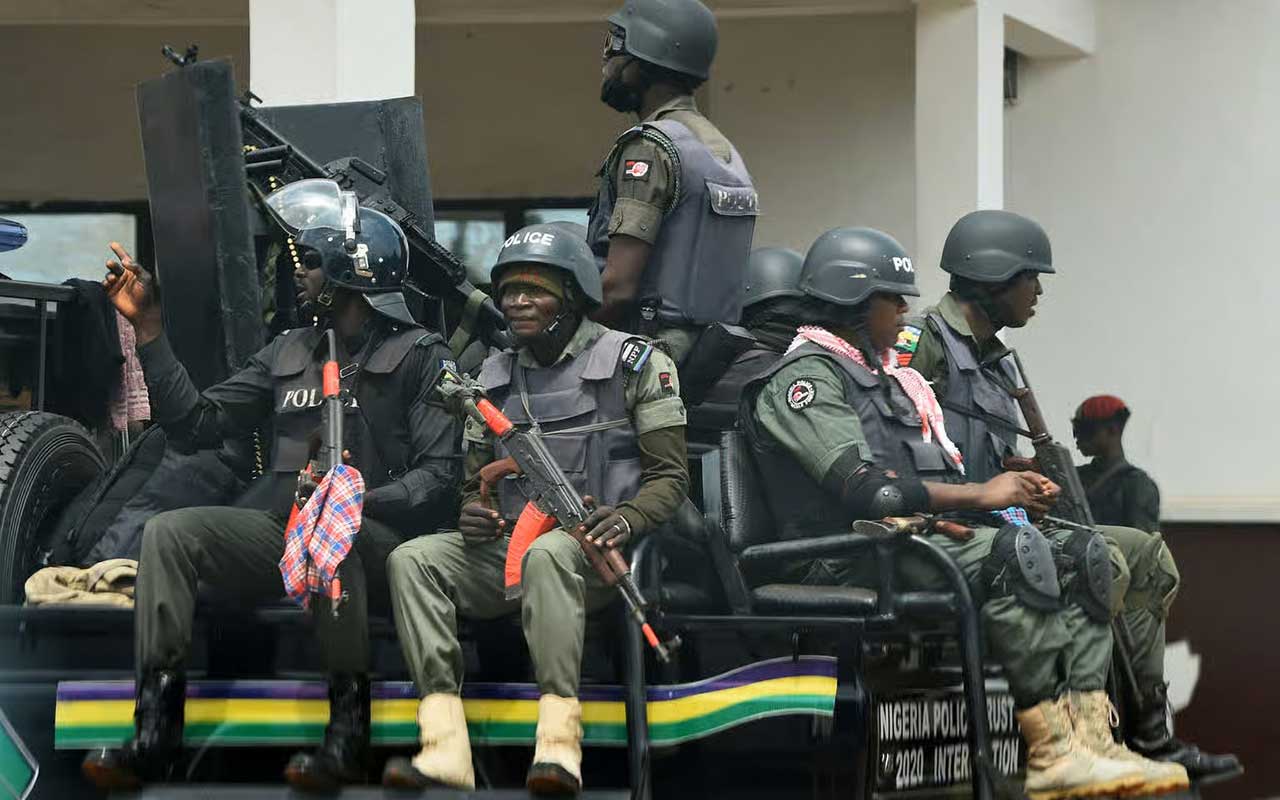
It was designed to honour Abubakar for his selfless exertions as a mediator and bridge-builder in various African countries such as Liberia, Niger, Sudan, Darfur, Congo and Nigeria since 1998. Major General Abubakar came to power on June 8, 1998 without planning a coup or winning an election. He was actually supposed to be retired from the Army on that day. By an inexplicable stroke of luck he got promoted to a full general and commander in chief of the Armed Forces and was crowned the Head of State of Africa’s biggest nation, Nigeria. But the members of his family did not break into song and dance.
In particular, one of his daughters wept uncontrollably asking in bewilderment, “Daddy, why you?” It was an appropriate question for a young girl who loved her dad to ask. Afterall Nigeria was at this point in the arena of turbulence. A free and fair election conducted five years earlier had been annulled and since then the country was sitting on a keg of gunpowder. Nine activists in the Niger Delta region including the famous playwright Ken Saro Wiwa had been killed in what came to be called judicial murder. Nigeria’s transition to civil rule was an endless journey of twists and turns.
The international community was now treating Nigeria as a pariah state that they would not touch even with a 10-foot pole. Nigeria was being baked under a pressure cooker. The young lady must have remembered that three of Nigeria’s leaders had been assassinated while in office: Abubakar Tafawa Balewa in January 1966, J.T.U Aguiyi-Ironsi in July 1966 and General Murtala Muhammed in February 1976. And now General Sani Abacha who had looked hale and hearty and was as a fierce-looking as they come in his dark glasses the day before had just kicked the bucket and no one knew precisely how it happened. All of these must have crossed the young lady’s mind.
But Abubakar knew that if his country chose him to lead it in a momentous time in its troubled history he had no choice but to obey the nation’s call. He ascended the throne without any hesitation, sent out service chiefs and the Inspector General of Police to gauge public opinion in all zones of the country. They came back with the view that the country wanted a closure on the June 12 imbroglio, the transition to civil rule fast tracked, an increase in minimum wage and other sundry problems. Abubakar announced early that he would conduct elections and handover to an elected civilian government within 11 months. There was a high dose of cynicism in the air, and everywhere he went this cynicism surfaced menacingly in town hall meetings and at press conferences.
There was every reason for doubt because since 1984 three leaders, Muhammadu Buhari, Ibrahim Babangida and Sani Abacha had dribbled Nigerians the way Maradona always dribbled the ball past several defenders. Nigerians were transition-weary and were worried whether it would ever end. But Abubakar was different. In an interview with Newswatch which was published in the magazine’s issue of August 31, 1998 he said: “You all know the circumstances that brought me to the mantle of leadership. I am not going to tempt the Good Lord by having a hidden agenda.”
He interfaced with the press regularly and to help him manage the media he chose Chief John Nwodo as the Minister of Information and Mr Mohammed Haruna, a very experienced print media journalist as his Chief Press Secretary. Two qualities possessed by the two men who managed Abubakar’s media relations, Nwodo and Haruna, were knowledgeable-ness and personableness. During my presentation on Press Freedom under Abubakar at the festschrift conference I mentioned the fact the two men assisted the Head of State admirably in managing his media relations effectively under very difficult conditions.
The job of an information manager is largely two-fold (a) disseminating truthful information to the public in an appealing and friendly manner so as to uphold the public’s right to know. (b) Winning friends for the government through excellent public relations. These two men did both excellently for Abubakar. That is why they won the press over. Secondly, Abubakar himself had excellent public manners. He did not behave in the sadistic, crude and uncouth manner of some of the military rulers we have had. Eventhough he was every inch a military man he had the thorough refinement of a gentleman. He had no chips on his shoulders and he did not exhibit his tigritude eventhough as a soldier he could be said to possess the dominating qualities of a tiger. He remained disarmingly humble.
I believe that people who display needless arrogance are suffering from some sort of inferiority complex. During the brief period he was in office, Abubakar threw into the refuse bin the obnoxious National Mass Media Commission and Press Court which was birthed by his predecessor. He also repealed the evil Decree 2 which authorised government to detain anyone indefinitely without trial. If he had allowed it to stay in the law books it would have been converted into an Act which the civilian administration would have had to contend with.
How can any government, military or civilian, decide that it is beneficial to lock up its citizens indefinitely instead of getting them tried in the law courts for whatever offence they may have committed. That was wickedness personified. Then we also had Decree 4 which was enacted by the military government of Major General Buhari. Decree 4 stated that you could be sent to jail if you published a story that embarrassed the government or a government official even if the story was truthful. In other words, truth telling was a punishable offence. Mr Tunde Thompson and Mr Nduka Irabor, reporters of The Guardian were actually sent to jail for one year for publishing the truth. The country was aghast at the fact that truth had been demonised while lies were invariably a preferred mode of communication. The media community made elaborate arrangements at the time to give the two men a hero’s welcome on the day of their release. A few days before their official release date they were quietly taken out of the prisons to take the wind out of the sails of the planned reception for the media heroes. That means that those who put them in jail were ashamed of their perfidy. After that, Decree 4 died a natural death and truth survived the invidious attempt at its asphyxiation.
We also witnessed during the regimes of Buhari and Babangida the phenomenon of retroactive legislation. Three boys who were accused of cocaine crimes were killed for the offences eventhough death penalty was not the prescribed punishment when the crime was committed. After that, the decree died from the public outrage that accompanied it. But retroactive legislation was not dead. When Newswatch was proscribed in 1987 there was no such law for the alleged “offence.”
A law was simply rolled out after the publication had hit the streets and backdated to take care of an offence that did not carry proscription as punishment when it was allegedly committed. Abdulsalami Abubakar did not engage in such invidious and wicked practices as some of his predecessors in office. Eventhough we had disagreements with his government on the revised Press Council issue we treated each other with respect until he left because he made himself to be seen as a trusted and truthful and humane leader who brought civility and decency into governance.
Mohammed Ladan Salihu, chairman of the State House Press Corps at the time told me how Abubakar surprised them one day. He said: “There was this inexplicable charm about him. I remember him barging into the Press Portakabin on Friday unaccompanied. We were naturally stunned by his sudden presence. He simply said: “I am here to see how you guys are doing.” He shook hands with us and cracked jokes. “Okay my friends, have a great weekend. Salihu said: “General Abubakar was simple, full of humour and humility.”
Abubakar and the media did not agree on all the burning issues of that period: petrol price increase, petroleum subsidy, Nigeria Press Council Decree No. 60 and the expenditure of 64 billion naira by the government on various projects a few months before its handover date. But because the government was always prompt in coming up with its own facts and figures there was no severe rupture in the relationship between the government and the media. And because the Head of State was nice, friendly and personable he was capable of enjoying the trust of the media and the people. On some of those issues mentioned which were ticklish, the government and the media disagreed agreeably.
Apart from having two able information managers who were also friendly, and never called journalists wailers, traitors and haters. Abubakar himself opened himself up and the press believed him that he had no hidden agenda. And when he handed over the reins of power to Olusegun Obasanjo on May 29, 1999 his job was done and dusted. That is why he is being toasted today in Nigeria and around the world as a man of honour.






